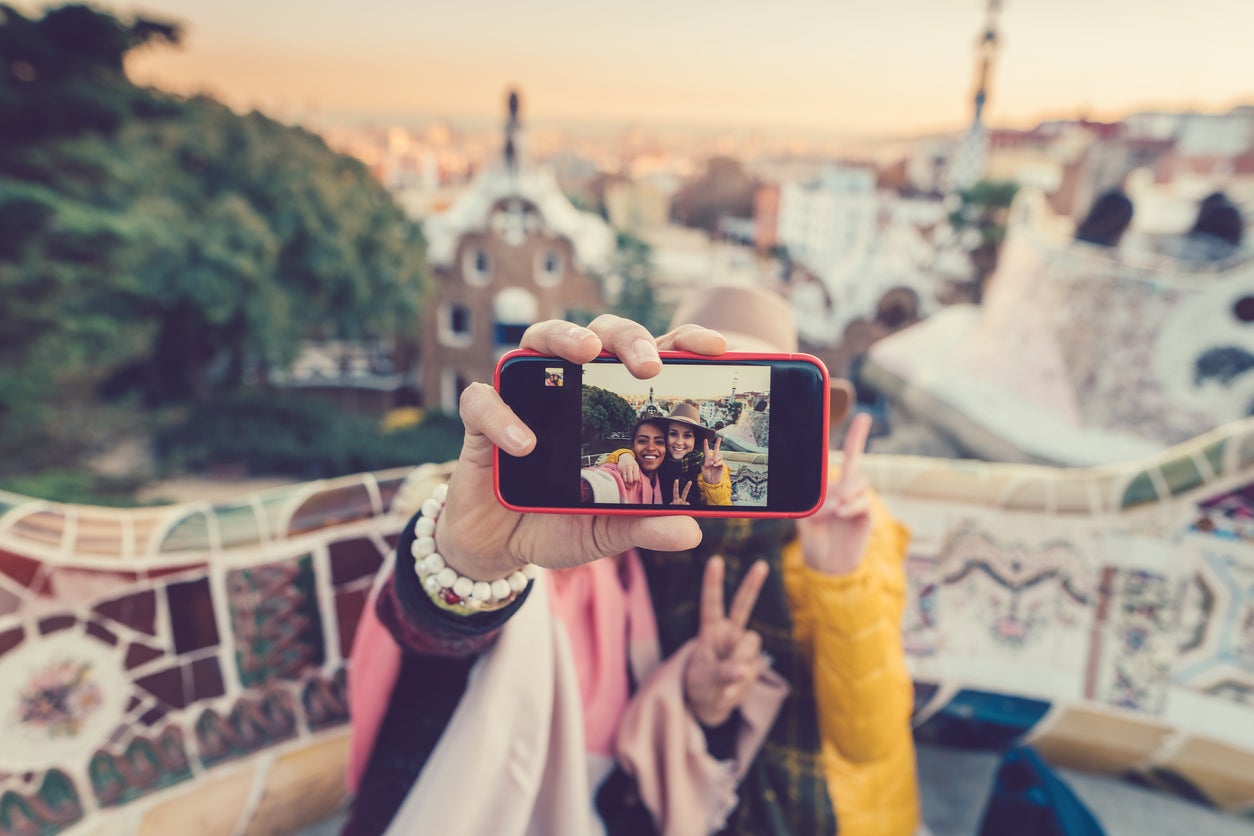Why this social media influencer is campaigning to make travel Instagrammers behave more responsibly
A petition has been started to ‘encourage the social media generation to behave more responsibly outdoors’

Your support helps us to tell the story
From reproductive rights to climate change to Big Tech, The Independent is on the ground when the story is developing. Whether it's investigating the financials of Elon Musk's pro-Trump PAC or producing our latest documentary, 'The A Word', which shines a light on the American women fighting for reproductive rights, we know how important it is to parse out the facts from the messaging.
At such a critical moment in US history, we need reporters on the ground. Your donation allows us to keep sending journalists to speak to both sides of the story.
The Independent is trusted by Americans across the entire political spectrum. And unlike many other quality news outlets, we choose not to lock Americans out of our reporting and analysis with paywalls. We believe quality journalism should be available to everyone, paid for by those who can afford it.
Your support makes all the difference.Instagram is nothing if not aspirational. Full of enviable travel shots showing off the world’s most beautiful, remote spots, as well its most popular landmarks, it’s like a digital safari of gorgeous photography.
But one social media influencer is asking: at what cost?
Elisabeth Brentano, otherwise known as Elizabeth on the Road, is a photographer and influencer with more than 88,000 followers on social media. Her work takes her all over the world to capture lust-worthy images – and yet she’s started a campaign to curb the excesses of today’s snap-happy Instagram generation.
Posted on Change.org, her petition, called “Encouraging the social media generation to behave more responsibly outdoors”, calls for individuals to understand the negative impact their actions can have on the planet.
Brentano writes: “When individuals use Instagram to publicly post photos and videos of themselves breaking the law and engaging in activities that are harmful to the environment, there is seldom any legal recourse. Worse yet, when shared by larger accounts, publishers or brands, this content has the potential to reach millions of people.
“Whether it is an honest mistake or a flagrant violation of federal laws, it ultimately does the same amount of damage. Without any sort of regulation, it is impossible to stop the spread of media that might encourage other Instagram users to engage in similar illegal and damaging behaviour.
“Some examples include burning fires, camping and flying drones in areas where parks and law enforcement have banned these activities.”
Other examples highlighted include trespassing on closed sections of parks and historical sites, disturbing and feeding wildlife, and vandalism.
Brentano says that a sudden surge in visitors due to a location becoming popular on social media can also be damaging. “A number of outdoor destinations all over the world have been closed or destroyed due to the negative impacts from this influx of visitors,” she says.
“Keyhole Hot Springs, near Pemberton, BC, Canada, which became wildly popular thanks to thousands of photos posted on Instagram, was closed for the second time in 2017 due to a ‘dangerous’ increase in both grizzly and black bear activity.”
Earlier this year, The Independent reported on a sunflower farm in Ontario, Canada, that announced it was closed “forever!” after being inundated with visitors keen to score the perfect picture for Instagram.
Described as an “apocalypse” by the Globe and Mail, the masses began arriving at 5.45am on Saturday 28 July; by noon, local roads were overwhelmed, with people parking up to a kilometre away.
Local neighbours were reported to be furious at what had quickly developed into a public safety hazard on the usually quiet country roads.
Brentano thinks that since social media is part of the problem, it should be part of the solution.
She says: “I would like to propose that Instagram and Facebook act immediately and implement a system allowing users to report violations that are both illegal and harmful to the environment.
“These reports could be submitted to an outdoor ethics department at Instagram and Facebook that would consult with and/or work in conjunction with nonprofits, scientists, parks and law enforcement to assist in the citation of users (both individuals and companies) and ensure that these photos do not continue to get shared on social media.”
The Californian travel photographer also suggests that social media sites provide flagged accounts with appropriate resources on responsible recreation, protecting the environment and volunteer opportunities so they might be able to change their ways.
Ultimately, Brentano argues that “repeat offenders should have their accounts disabled if they cannot abide by the laws created to protect and preserve the outdoors".
The petition currently has more than 7,000 signatures.
Join our commenting forum
Join thought-provoking conversations, follow other Independent readers and see their replies
Comments